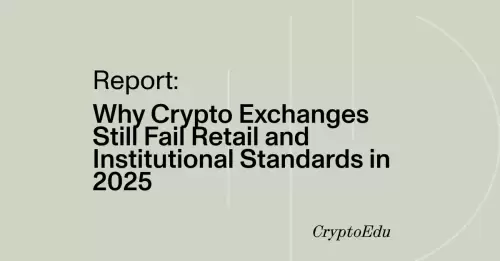 |
|
 |
|
 |
|
 |
|
 |
|
 |
|
 |
|
 |
|
 |
|
 |
|
 |
|
 |
|
 |
|
 |
|
 |
|
賞金は、SUIベースの分散型取引所(DEX)Cetusから盗まれた資金を回収することを申し出ています。
The bounty offer to recover stolen funds from Sui-based decentralized exchange (DEX) Cetus closely resembles a successful strategy used by a Solana project three years ago.
Bountyは、SUIベースの分散型取引所(DEX)Cetusから盗まれた資金を回収するという申し出は、3年前にSolanaプロジェクトで使用される成功した戦略に非常に似ています。
It turns out that Cetus shares the same development team with Crema Finance, a Solana-based DeFi project that suffered a $9-million hack in 2022 but recovered most of the funds by negotiating with its hacker. Now, Cetus is relying on the same strategy.
Cetusは、2022年に900万ドルのハッキングを受けたSolanaベースのDefiプロジェクトであるCrema Financeと同じ開発チームを共有しているが、ハッカーと交渉することでほとんどの資金を回収した。現在、Cetusは同じ戦略に依存しています。
Cetus is asking the hacker to return all but $6 million, or 2,324 Ether (ETH), of the stolen funds in exchange for a promise not to pursue legal action. The protocol lost $223 million to an exploit on May 22.
Cetusは、Hackerに、法的措置を追求しないという約束と引き換えに、盗まれた資金の600万ドル、つまり2,324 Ether(ETH)を返却するよう求めています。このプロトコルは、5月22日に2億2,300万ドルをエクスプロイトに失いました。
The size of the bounty has sparked backlash from users, with many calling for a formal compensation plan instead. Several community members argue that even if funds are recovered, most of the damage has already been done — especially to holders of the CETUS token, which plummeted in value following the incident.
賞金の規模はユーザーからの反発を引き起こし、代わりに正式な補償計画を求めています。数人のコミュニティメンバーは、資金が回収されたとしても、ほとんどの損害がすでに行われていると主張しています。特に、インシデント後の価値が急落したCetus Tokenの所有者。
Meanwhile, Sui validators are also under fire for their role in freezing the funds. The move is aimed at aiding recovery, yet critics say it exposes centralization risks in the network.
一方、SUIのバリッターは、資金を凍結する上での役割のために攻撃されています。この動きは回復を支援することを目的としていますが、批評家は、ネットワーク内の集中リスクを明らかにすると言います。
Sui’s Cetus devs have a phantom exchange on Solana
SuiのCetus開発者は、Solanaでファントム交換を行います
A similar negotiation strategy used by the Cetus team on Sui was successfully employed years ago to recover funds for Crema. The Solana project hasn’t posted on its X account since March 2023, and its trading platform now sees negligible volume, but it still didn’t end well for the hacker.
CETUSチームがSUIで使用した同様の交渉戦略は、CREMAの資金を回収するために数年前に雇用されました。 Solanaプロジェクトは2023年3月以来Xアカウントに投稿されておらず、取引プラットフォームは今では無視できるボリュームを見ていますが、それでもハッカーにとってはうまくいきませんでした。
Crema suffered an approximately $9-million hack in 2022. Much like the Cetus case, the Crema hacker was offered a deal to return the funds while keeping $1.6 million in exchange for not reporting the attack to law enforcement.
Cremaは2022年に約900万ドルのハックを受けました。Cetus事件と同様に、Crema Hackerは、法執行機関への攻撃を報告しないと引き換えに160万ドルを維持しながら、資金を返還する契約を提供されました。
The hacker is believed to have been caught and sent to prison. In April 2024, the US Attorney’s Office for the Southern District of New York sentenced Shakeeb Ahmed to three years in prison for hacking two separate cryptocurrency exchanges. One was identified as Nirvana Finance, while the other was not named.
ハッカーは捕まって刑務所に送られたと考えられています。 2024年4月、ニューヨーク州南部地区の米国弁護士事務所は、2つの別々の暗号通貨取引所をハッキングしたために、Shakeeb Ahmedに3年の刑を宣告しました。 1つはNirvana Financeとして特定され、もう1つは名前が付けられていませんでした。
The details of the unnamed exchange’s case match Crema’s hack, including the exact date of the exploit and the terms of the agreement.
無名のExchangeのケースのケースの詳細は、エクスプロイトの正確な日付と契約条件を含むCREMAのハックと一致します。
Norbert Bodziony, founder of Nightly App, claims the Cetus team was behind Crema Finance.
Nightly Appの創設者であるNorbert Bodzionyは、CetusチームがCrema Financeの背後にいたと主張しています。
Bodziony declined to disclose how he learned of the relationship to Cointelegraph but added that the connection is “commonly known” in Sui’s developer circles.
Bodzionyは、Cointelegraphとの関係をどのように学んだかを明らかにすることを拒否しましたが、SUIの開発者サークルでは接続が「一般的に知られている」と付け加えました。
Cointelegraph reached out to Cetus to confirm the connection between the two projects, but the team had not responded by publication.
CointelegraphはCetusに連絡して2つのプロジェクト間の関係を確認しましたが、チームは出版物によって応答していませんでした。
Cointelegraph has separately learned that both projects are founded by Henry Du.
Cointelegraphは、両方のプロジェクトがHenry Duによって設立されたことを別々に学びました。
Save Cetus; centralize Sui
セタスを保存します。 SUIを集中化します
Sui’s validators have collectively blocked transactions from the hacker’s addresses, effectively freezing $162 million of the stolen funds on Sui. Around $63 million had already been bridged to Ethereum before these controls were implemented.
SUIのバリデーターは、ハッカーの住所からの取引をまとめてブロックし、SUIで1億6,200万ドルの盗まれた資金を事実上凍結しています。これらのコントロールが実装される前に、約6300万ドルがすでにイーサリアムに橋渡しされていました。
Although the coordinated effort has been effective in preventing the funds from being laundered, the cryptocurrency community has criticized Sui for being too centralized.
調整された努力は、資金が洗濯されるのを防ぐのに効果的でしたが、暗号通貨コミュニティはSUIをあまりにも集中化していると批判しています。
“SUI’s validators are colluding to CENSOR the hacker’s TXs right now! Does that make SUI centralized? The short answer is YES; what matters more is why? The ‘founders’ own the majority of supply & there are only 114 validators!” Justin Bons, founder of Cyber Capital, wrote on X.
「SUIのバリデーターは、ハッカーのTXSを今検閲するために共謀しています!それはSUIを集中化しますか?短い答えはイエスです。なぜ重要なのですか?サイバーキャピタルの創設者であるジャスティンボンズは、Xに書きました。
As Bons pointed out, Sui has just 114 validators — far fewer than its more established smart contract peers. Ethereum has over 1 million validators, while Solana has 1,157.
Bonsが指摘したように、SUIにはわずか114人のバリデーターがあります。これは、より確立されたスマートコントラクトピアよりもはるかに少ないです。 Ethereumには100万人以上のバリデーターがあり、Solanaには1,157人がいます。
Meanwhile, members of the Sui community defended the move, arguing that this is how real-world decentralized chains should function.
一方、SUIコミュニティのメンバーはこの動きを擁護し、これが現実世界の分散型チェーンがどのように機能するかであると主張しました。
“Decentralization isn’t about standing by while people get hurt, it’s about the power to act together, without needing permission,” said one member of the Sui community.
「地方分権化は、人々が怪我をするときに立ち向かうことではなく、許可を必要とせずに一緒に行動する力についてです」とSUIコミュニティの一人のメンバーは言いました。
Following the hack, Sui developers committed code for a proposed function that would have allowed specific transactions to bypass all signing and safety checks by adding them to a whitelist.
ハックに続いて、SUIの開発者は、ホワイトリストに追加することにより、特定のトランザクションがすべての署名と安全チェックをバイパスすることを可能にしたであろう提案された機能のためにコードをコミットしました。
While the function could have been used to help recover stolen funds, it also raised concerns about centralized control and the erosion of decentralization. The code was ultimately not merged and is not live on the network.
この機能は、盗まれた資金の回復に役立つかもしれませんが、集中管理と地方分権の侵食に関する懸念も提起しました。コードは最終的にマージされておらず、ネットワーク上でライブではありません。
Sui and Cetus backlash contrasts recent hacks
SuiとCetusの反発は、最近のハックとは対照的です
The Cetus exploit has spotlighted the persistent security challenges in DeFi while raising deeper questions about who holds the reins in supposedly decentralized networks like Sui.
Cetus Exploitは、Defiの持続的なセキュリティの課題にスポットライトを当てながら、SUIのような分散型ネットワークで誰が手綱を保持しているかについてのより深い疑問を提起しました。
The team’s $6-million offer to the hacker mirrors the playbook it used with Crema — but this time, the crypto community isn’t as forgiving. With CETUS tanking, trust fractured and validators freezing funds, critics are asking whether Sui’s decentralization is more appearance than reality.
チームのハッカーへの600万ドルのオファーは、CREMAで使用したプレイブックを反映していますが、今回は暗号コミュニティはそれほど寛容ではありません。 Cetusのタンキング、信頼の骨折、およびバリデーターが資金を凍結することにより、批評家はSuiの地方分権化が現実よりも外観であるかどうかを尋ねています。
The debate over decentralization isn’t unique to Sui. When Bybit lost
地方分権化に関する議論は、SUIに固有のものではありません。バイビットが失われたとき
免責事項:info@kdj.com
提供される情報は取引に関するアドバイスではありません。 kdj.com は、この記事で提供される情報に基づいて行われた投資に対して一切の責任を負いません。暗号通貨は変動性が高いため、十分な調査を行った上で慎重に投資することを強くお勧めします。
このウェブサイトで使用されているコンテンツが著作権を侵害していると思われる場合は、直ちに当社 (info@kdj.com) までご連絡ください。速やかに削除させていただきます。





























































